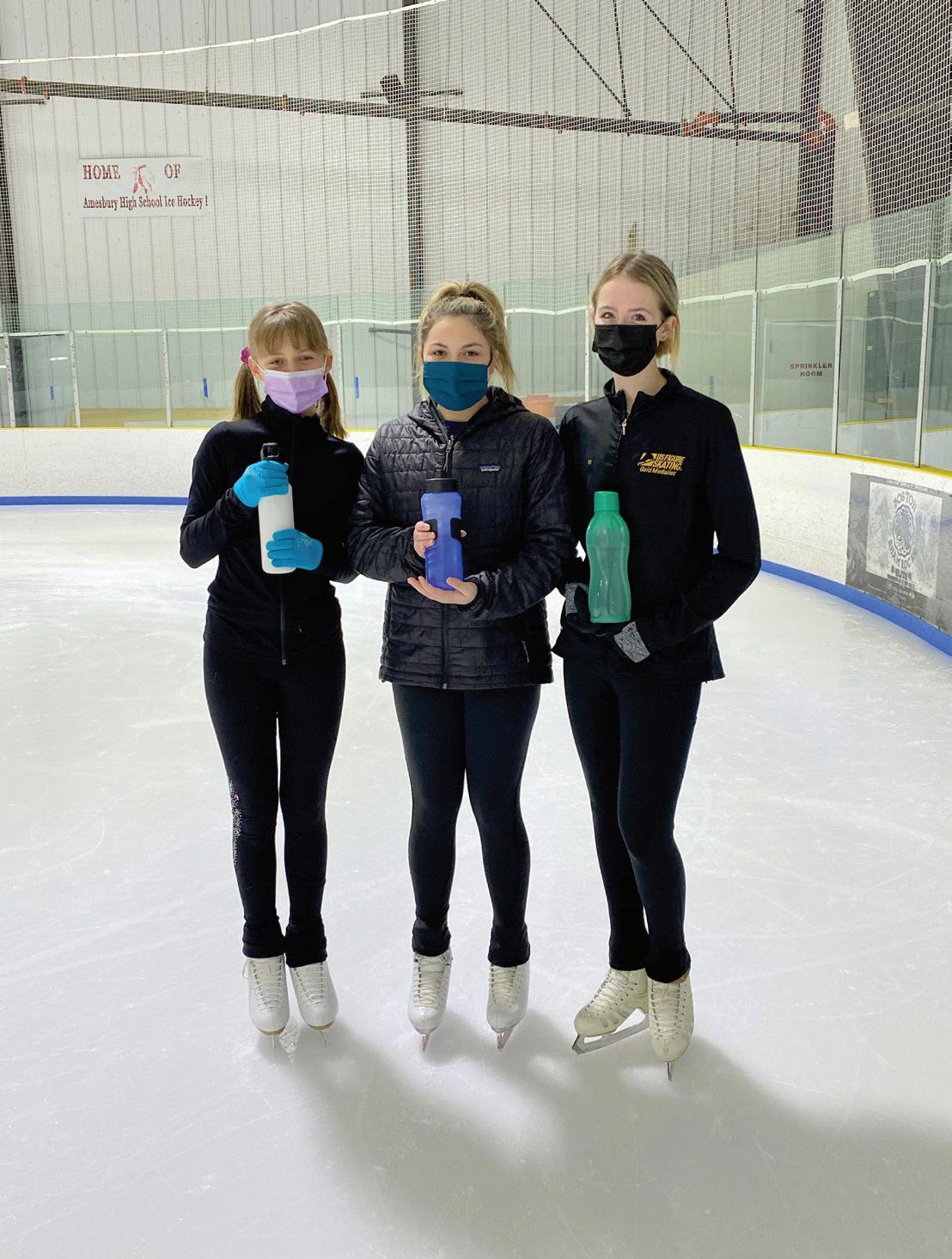
5 minute read
Foundations of Nutrition
By Julianne Pondelli, RFS, RM
Nutrition plays a key role in a skater’s athletic performance. How they fuel their body can impact their skating, both in practice and competition. In a sport where disordered eating is prevalent, coaches and parents play an essential role in helping skaters develop a lifelong healthy relationship with food. Understanding the foundations of nutrition will help coaches make more informed decisions about how a skater should fuel their body.
Advertisement
It is critical for coaches to stress to their athletes the benefits of including foods with a variety of nutrients rather than focusing on weight and calories. Coaches can emphasize the importance of fueling and encourage skaters to eat a healthy balanced diet as well as advise skaters on the repercussions of not fueling properly.
While they are not all created equal, foods within these three groups provide energy which equates to physical endurance. Athletes will work more efficiently when they consume a more balanced diet that provides a variety of macro and micronutrients. Macronutrients are carbohydrates, protein, and fat all of which yield energy. Micronutrients are the vitamins and minerals that the food provides. With the exception of vitamin D, vitamins and minerals must be derived from the diet. Pairing carbohydrate sources with a mix of protein and fat, will help to sustain and to provide energy to muscles more consistently.
Timing is crucial to athletes.
This should be a meal that the skater knows will not cause any GI discomfort during their skate. After practice, the skater should aim to eat some form of protein with carbohydrates within 30-60 minutes to refuel, replenish, and repair muscles.
Carbohydrates are necessary to provide the skater with enough energy to get through their daily practice schedule. Rice, lentils, quinoa, pasta, and bread are excellent sources of carbohydrates. Whole grains are the best source because they have more nutrients that the body can utilize. They also contain fiber, which will maintain the feeling of fullness longer. Eating enough carbohydrates will help the athlete’s body spare protein to be used to repair muscles instead of energy.

Eating protein at each meal throughout the day and within an hour of a workout, will keep the athlete’s energy stable as well as promoting muscle strength and repair.
By consuming these foods, athletes will be able to meet their protein needs within their meals. As a result, supplementation with protein powders will not be necessary unless trying to add calories. Although protein needs are higher in athletes, much depends on the duration and frequency of their training. For example, a 130lb athlete may require approximately 70 grams of protein or more each day.
Fat is an essential part of an athlete’s diet because it provides essential fatty acids which are necessary to absorb fat soluble vitamins.
An example of this is landing the jump elements in the last minute of a free skate program. Olive oil, avocado, nuts, dark chocolate, and fatty fish are all sources of good healthy fat.
Hydrating with water is optimal. In high intense, long workouts sports drinks are beneficial to hydrate as well as replace electrolytes lost through sweating. Studies show that dehydration can negatively impact athletic performance by 2-3%.
Adequate fluids should be consumed before (approximately 16 oz), during (enough to keep from becoming dehydrated), and after a workout (an additional 16 oz).
As coaches, it is vital to stress to parents the importance of healthy food habits so they can support the skater away from the rink. Ensuring that the athlete eats a healthy breakfast each day, and is eating every three to four hours after, will prevent their body from going into fasting mode. Athletes should be coming to the rink prepared for their long day.
Whether they train before or after school, snacks and water will play a role in keeping their performance level high. S
It may potentially cause a binge if they have gone too long without fuel. Parents can also be the first line of defense in noticing disordered eating patterns, skipping meals, or restricting habits. As coaches, we know that body composition and weight can have an effect on athletic performance especially in skating, however the American College of Sports Medicine discourages weigh-ins.
For skaters that need more individualized nutrition support due to disordered eating patterns or medical issues, referring them to a Registered Dietitian (RD) in the area is a good idea. An RD should be part of the skater’s team of professionals just like a choreographer, PT, or athletic trainer. An RD will always focus on how food can assist in your athletes’ endeavors. They will educate how and when to use food as fuel so skaters will perform to their potential. An RD will never tell the skater what not to eat (unless medically indicated), to restrict an entire food group, or to do a cleanse or fast. Together with skaters’ parents, coaches can promote healthy eating habits to build stronger, healthier athletes. The goal should be to encourage the skater to reach their fullest potential, while developing a healthy lifelong mindset around food.
Julianne Pondelli MS, RD, LDN is a Professional Figure Skating Coach and Registered Dietitian in the Boston area. She holds a PSA Registered Rating in MIF and FS and is an AFAA Certified Athletic Trainer. She is the Head Coach of Northeastern University’s Collegiate Figure Skating Club and coaches at many clubs in the Boston Area. Instagram: @skaternutrition









